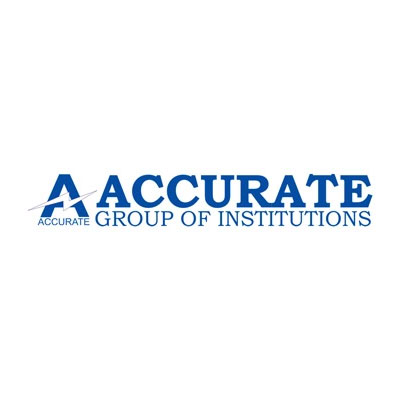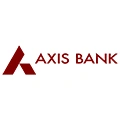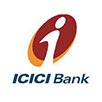In the realm of management education, two prominent courses often vie for the attention of aspiring business professionals: Post Graduate Diploma in Management (PGDM) and Master of Business Administration (MBA). Both programs are designed to equip students with the necessary skills and knowledge to excel in the dynamic world of business and management. However, they differ in various aspects, ranging from accreditation to curriculum flexibility. In this article, we will delve into the key differences between PGDM and MBA, aiming to aid prospective students in making an informed decision about their career path.
Program Structure and Affiliation:
The first and perhaps most significant difference between PGDM and MBA lies in their program structure and affiliation. PGDM is offered by autonomous institutes and private business schools, while MBA is typically provided by universities or government-affiliated institutions. The autonomy of PGDM programs allows institutes to design their curricula, keeping them up to date with industry trends and demands. This flexibility allows PGDM programs to be more agile in adapting to emerging business challenges and integrating real-world scenarios into the coursework.
On the other hand, MBA programs, being affiliated with universities, follow a more standardized curriculum. While this ensures a certain level of consistency, it might limit the ability to swiftly incorporate new developments in the business world. However, this affiliation can also bring advantages in terms of credibility and recognition, as university-affiliated degrees are often perceived as more reputable by employers.
Accreditation and Recognition:
Accreditation is a crucial aspect to consider when choosing between PGDM and MBA programs. With accreditation, you may be confident that the educational institution and its programs adhere to a set of high criteria and are approved by the appropriate authorities. The All-India Council for Technical Education (AICTE) in India accredits PGDM programs, ensuring that the institutions providing these programs maintain academic criteria.
In the case of MBA programs, their affiliations with universities or government bodies automatically grant them recognition and accreditation. This recognition can be a valuable factor for students who plan to pursue higher studies or seek employment opportunities abroad, where university-affiliated degrees often enjoy better international acceptance.
Specializations and Electives:
Another vital distinction between PGDM and MBA lies in the availability of specializations and elective courses. PGDM programs often offer a wide array of specializations, ranging from marketing and finance to human resources and operations management. This extensive choice of specializations enables students to tailor their studies to match their specific career aspirations, making PGDM an attractive option for those with well-defined career goals.
MBA programs, especially the traditional ones, may have limited specialization options. Instead, they might focus on providing a more holistic management education, covering various business functions without offering deep specialization in a specific area. However, some MBA programs do offer concentrations or elective courses, though the range of options might not be as extensive as those available in PGDM programs.
Focus on Practical Skills:
PGDM programs are known for their practical and application-oriented approach to education. The curriculum is often designed in consultation with industry experts and practitioners, and students are exposed to various real-world scenarios through case studies, internships, and projects. This hands-on exposure helps students develop problem-solving skills, adaptability, and a better understanding of the challenges they might encounter in their professional careers.
MBA programs, especially those offered by universities, can be more theoretical in nature. While they do impart valuable theoretical knowledge, the focus on practical skills and industry exposure might not be as extensive as in PGDM programs. However, some MBA programs have also started incorporating experiential learning opportunities to bridge this gap.
Admission Criteria:
The admission criteria for PGDM and MBA programs can vary significantly. PGDM programs, being offered by autonomous institutes, can set their own admission standards. This flexibility allows them to consider a wider range of factors, such as work experience, extracurricular achievements, and performance in the institute's entrance exam or national-level management tests like CAT, XAT, or MAT.
MBA programs, being affiliated with universities, often have a more standardized admission process. They might place a higher emphasis on academic qualifications and scores in national-level entrance exams like CAT, CMAT, or GMAT. While some universities may also consider work experience and extracurricular activities, the criteria tend to be more rigid compared to PGDM programs.
Course Duration and Flexibility:
PGDM programs typically have a shorter duration compared to MBA programs. A PGDM course usually lasts for two years, while MBA programs may extend up to two and a half or three years. The shorter duration of PGDM can be appealing to students who wish to complete their studies and enter the job market more quickly.
Furthermore, PGDM programs often offer more flexibility in terms of course structure. As autonomous institutions, they can adapt their curricula to current industry requirements more easily. This allows them to introduce new subjects and update their course content as needed, ensuring that students are well-prepared to face the challenges of the rapidly evolving business landscape.
Cost and Return on Investment (ROI)
Cost is a significant factor for many students when considering higher education. PGDM programs offered by private institutes may be relatively more expensive than MBA programs offered by government or university-affiliated institutions. The tuition fees for PGDM can vary significantly depending on the reputation of the institute and the facilities it provides.
A wider spectrum of students may be able to enrol in MBA programs thanks to decreasing tuition costs, especially those provided by government colleges. Additionally, government colleges may provide financial aid or scholarships to meritorious applicants, which helps ease the cost of earning an MBA.
CONCLUSION:
The decision between pursuing a PGDM or MBA program depends on various factors, including individual career goals, financial considerations, and the desired level of specialization. PGDM programs, being more agile and application-oriented, might be an excellent choice for those seeking specialized skills and hands-on exposure to the business world. On the other hand, MBA programs, with their affiliation to universities, offer recognition and potential international acceptance, making them suitable for students aspiring to higher studies or global career opportunities.
Ultimately, the key to making the right decision lies in thorough research and self-assessment. Prospective students should evaluate the reputation and accreditation of the institute, the available specializations, the curriculum, and the cost and ROI of the program. Moreover, speaking with alumni and faculty members, attending information sessions, and visiting campuses can provide valuable insights to aid in the decision-making process. By carefully considering these factors, aspiring business professionals can embark on a management education journey that aligns with their goals and aspirations, setting them on a path towards a successful and fulfilling career in the world of business and management.














